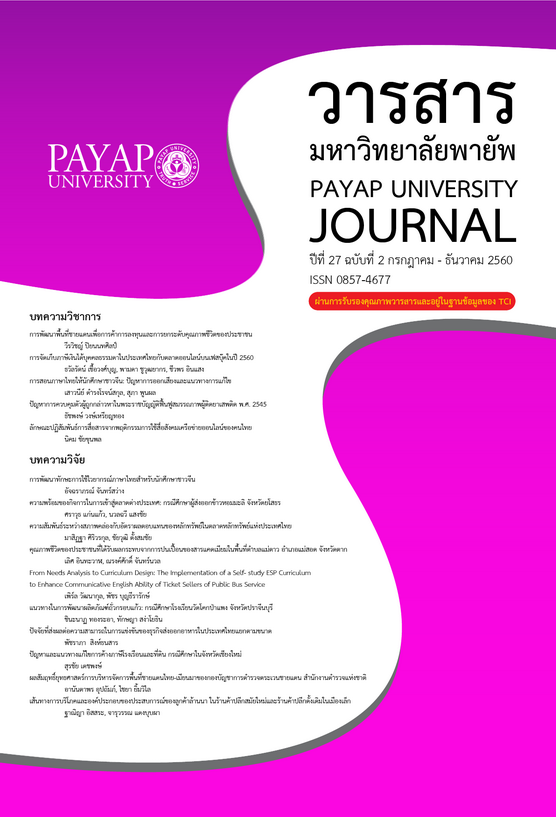ปัญหาการควบคุมตัวผู้ถูกกล่าวหาในพระราชบัญญัติฟื้นฟูสมรรถภาพผู้ติดยาเสพติด พ.ศ. 2545
Main Article Content
Abstract
To be concreted as the civilized countries have been accepted the ideal of the new criminologist that the narcotics addict is not a criminal but a patient who needs to rehabilitate from the narcotics addicted by no punishment in criminal law. Every country jointly enacted the United Nation Convention against illicit Traffic in Narcotic Drug and Psychotropic Substance, 1988. In this convention, it designated the narcotic user must get the rehabilitation program for returning back normally to the society by using the justice process as the instrument. Inorder that many countries such as USA, Australia Malaysia, there have been enacted. Laws for the treatment and rehabilitation of drug addicts to support this concept too.
For Thailand, it enacted the Narcotics Addict Rehabilitation Act, B.E. 2545 and it supersedes the criminal procedure before the trial starts by let the prosecutor to pre-trial diversion for control the narcotics addict to the rehabilitation. In the writer’s opinion, the power to pre-trial diversion is against the general principle of the pre-trial diversion.
The principle the separation of powers is the pre-trial diversion when the prosecutor inspects the case and see that the act of the accused are completed the element of the offenses but to submit the lawsuit may cause the pro than the con, he then use his discretion to pre-trial diversion by the probation of the accused before the summit of the lawsuit to the court. If in the general case, the prosecutor has no power to control the accused as in the Narcotics Addict Rehabilitation Act, B.E. 2545. Moreover, the control of person is considered to the limitation of the freedom of the person; in this case, it should be the judicial authority to exercise this power.
Article Details
References
ธัชพงษ์ วงษ์เหรียญทอง. (2560). อำนาจลงโทษความผิดสากลกับการลงโทษซ้ำตามประมวลกฎหมายอาญาไทย วารสารมหาวิทยาลัยพายัพ. ปีที่ 27 ฉบับที่ 1 (มกราคม – มิถุนายน 2560).
ปรีดี เกษมทรัพย์. (2531). นิติปรัชญา.(พิมพ์ครั้งที่ 2) กรุงเทพ: มิตรนราการพิมพ์.
สมบูรณ์ ประสพเนต. (2525).ปัญหาเกี่ยวกับยาเสพติดให้โทษในประเทศอังกฤษ สหรัฐอเมริกา และไทย. วารสารราชทัณฑ์. ปีที่ 30 (54).
พระราชบัญญัติฟื้นฟูสมรรถภาพผู้ติดยาเพสติด พ.ศ. 2545
Dangerous Drug (Amendment) 1984
Rebert L. Smith.(1978). Community Correction: Rhetoric in search of Reality. Resources Material Series No. 14(16-18).
Sentencing Act 1991
The Dangerous Ordinance 1952
The Narcotic Addict Rehabilitation Amendments of 1971
The United Nation Convention against illicit Traffic in Narcotic Drug and Psychotropic Substance, 1988

